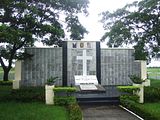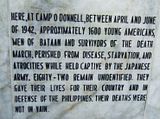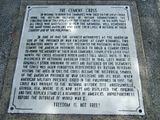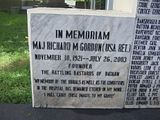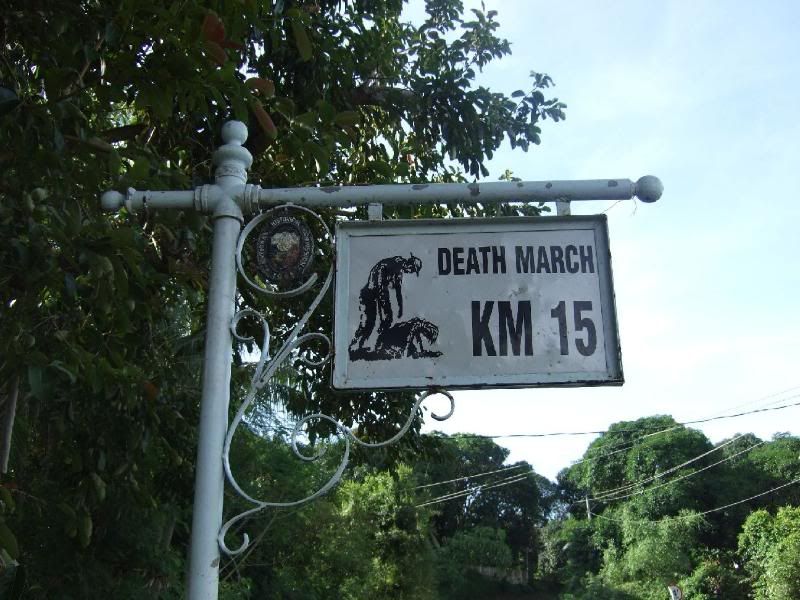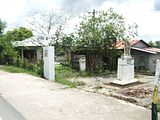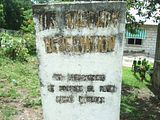Post by EXO on Aug 18, 2010 8:57:53 GMT 8
Concerning the "inability to act" issue, a lot of us - including me - have that feeling that if the coming undone of the plans to defend the Philippines wasn't so absolutely tragic, it would have been comic. The entire thing was misconceived in the planning stages decades before, and one of the factors I think which didn't exist at the time the planning was done, and by the time it did come to exist it 'changed the game' was the existence of the Philippine Commonwealth.
We automatically assume that the US forces had freedom to make war, once shot at. In sovereign US territory, yes. But the legal status of the Philippines was (like most everything there and then) "murky." Just because a state of shooting existed between Japan and the US didn't automatically mean that there was a state of war between Japan and the Philippine Commonwealth. Quezon still had a constitutional role, and he had been playing both ends against the middle for some time, even to the extent of visiting Japan secretly.
So in those first uncertain days, Quezon was still in physical charge of his Philippine Commonwealth (in the sense that he was holding all the strings, and by God, he was going to keep on pulling them, irrespective.) It is my suspicion of the man, that he was telling MacArthur he was cooperating with him 100%, and and the same time working furiously behind MacArthur's back. Decisions he made exacerbated the circumstances, and inhibited the plans which had been made. (eg failing to waive the prohibition against transporting rice across provincial borders.)
So, the US was stuck inside someone else's country, and unable to fight the war the way that the military knew it should be fought, with someone else pulling the strings his way, not theirs. Add that to the parlous state of the US provisioning men and materiel to the Philippines (which had gone back generations), and you have a clock set running to silently count down to an inevitable disaster.
Don't overlook the years of political wrangling between the Democrats and the Republicans who held opposing views of whether the US ought to be in the Philippines at all, and even how the road to independence should be planned and how a phase-out or draw-down should be handled.
A tiny bit like Vietnam, except that the US got most of its men out of Vietnam before the final denouement. Stay tuned on Iraq and Afghanistan.
Thank God for the Pearl Harbor imposed unity of the country which allowed the US to become the powerhouse to win WWII, arsenal of victory etc and the Pax Americana which followed.
Once again, I have strayed off topic, but thanks for the seed of it, Okla. Well, I see all of these tragedies, and more, in my mind's eye each time I see a Death March marker.
We automatically assume that the US forces had freedom to make war, once shot at. In sovereign US territory, yes. But the legal status of the Philippines was (like most everything there and then) "murky." Just because a state of shooting existed between Japan and the US didn't automatically mean that there was a state of war between Japan and the Philippine Commonwealth. Quezon still had a constitutional role, and he had been playing both ends against the middle for some time, even to the extent of visiting Japan secretly.
So in those first uncertain days, Quezon was still in physical charge of his Philippine Commonwealth (in the sense that he was holding all the strings, and by God, he was going to keep on pulling them, irrespective.) It is my suspicion of the man, that he was telling MacArthur he was cooperating with him 100%, and and the same time working furiously behind MacArthur's back. Decisions he made exacerbated the circumstances, and inhibited the plans which had been made. (eg failing to waive the prohibition against transporting rice across provincial borders.)
So, the US was stuck inside someone else's country, and unable to fight the war the way that the military knew it should be fought, with someone else pulling the strings his way, not theirs. Add that to the parlous state of the US provisioning men and materiel to the Philippines (which had gone back generations), and you have a clock set running to silently count down to an inevitable disaster.
Don't overlook the years of political wrangling between the Democrats and the Republicans who held opposing views of whether the US ought to be in the Philippines at all, and even how the road to independence should be planned and how a phase-out or draw-down should be handled.
A tiny bit like Vietnam, except that the US got most of its men out of Vietnam before the final denouement. Stay tuned on Iraq and Afghanistan.
Thank God for the Pearl Harbor imposed unity of the country which allowed the US to become the powerhouse to win WWII, arsenal of victory etc and the Pax Americana which followed.
Once again, I have strayed off topic, but thanks for the seed of it, Okla. Well, I see all of these tragedies, and more, in my mind's eye each time I see a Death March marker.







